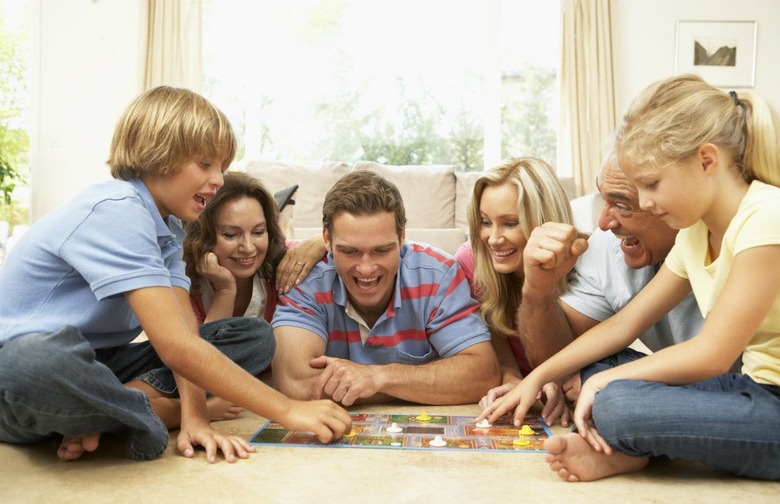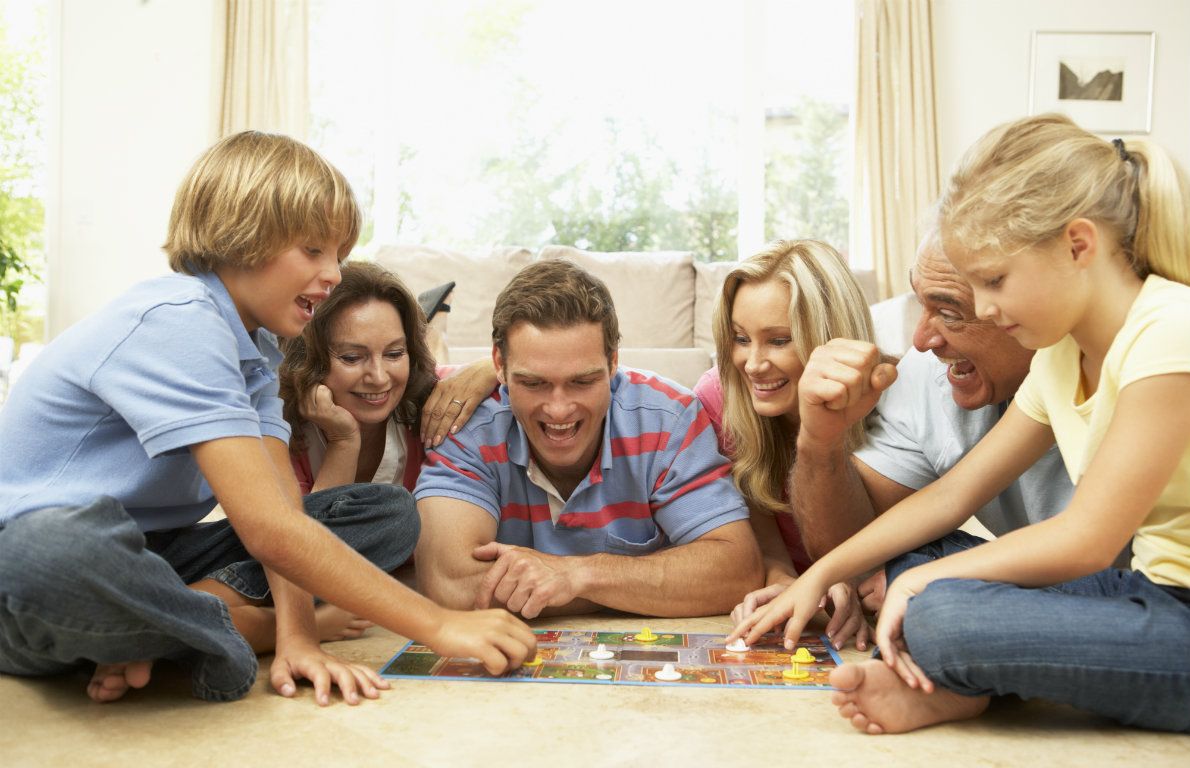5 Great Games To Play At The Table
Family dinner time can be rushed or routine. Games are surefire ways to break out of your rut and get the whole family playing together. While store-bought products like Balderdash, Apples to Apples, and Articulate are great for groups, you don't need to spend money to have a good time.
Here are five of our dinner-table favorites that guarantee lingering and laughs.
1. Homemade "Bananagrams"
So-named because it's an anagram that is sure to drive you bananas, this Scrabble alternative is ideal for playing with kids older than 7 or 8. Wait until the plates are cleared for this one and be sure to have at least three players.
What You Need: Bag for tossing and a set of Scrabble tiles.
How to Play: Each person starts with seven tiles. Play as you would Scrabble, each player free-forming words on the table. The first person to run out of tiles yells "pick two" and everyone takes two more. Throughout the game, you can rearrange your tiles as necessary (but you can't remove any). Playing continues until someone uses up all their tiles and there are no more remaining in the middle.
2. The Famous Person Game
This is a dinner party favorite. Each person must wear a sticker on their forehead with a famous person's name on it and then, by asking the other family members questions, guess who they "are."
What You Need: Blank white stickers or mailing labels, a marker, and a list of famous people.
How to Play: Create a list of famous people and write names on each mailing label or sticker. Once people are seated, place a sticker on each person's forehead, taking care that they don't see the name. People then take turns guessing who they are by asking questions of their fellow players who can all but reveal their identity to them. The game is over when the second to last person guesses who they are correctly.
3. Telephone
Another dinner party classic that never grows old and, if everyone follows the rules, will always result in some hilarious phrases being shared. This game is ideal for young players—so long as they can talk, they can play.
What You Need: A dinner table full of willing whisperers.
How to Play: One person starts by whispering a short phrase into the ear of their neighbor to their right. That person then whispers what they heard to the person on their right. And so it continues around the table until it gets to the person to the host's left. That person then announces what they heard to everyone. If someone didn't hear what was said in their ear, typically one "redial" is allowed. And don't be annoying by whispering too softly, spitting, or intentionally changing the phrase when playing.
4. Guess Who
This is a fun game to play with extended family or a close group of friends who know each other well.
What You Need: A notecard or other small piece of paper for each guest and pens.
How to Play: During dinner, ask everyone to describe themselves in three words — no more or less. It's up to them whether they want to write their words out in list (happy, sad, mad) or phrase (lover of all) format. People then turn their cards in to the host who mixes them up and reads them aloud over dessert (or afterwards). Players then have to match the description with the person who wrote it.
5. Great Minds Think Alike
This is a fun game from Party Games Plus to play when you're bringing together a bunch of people you don't know.
What You Need: Notecards and pens for each guest.
How to Play: Come up with ten categories/questions to ask (alternatively, you can also come up with these in advance) like a designer brand, famous chef, something you'd find in a city, weirdest invention, something you eat with chopsticks, or a dish with pasta, with your guests. If you're hosting a themed party, tie the categories in with the theme. Divide your guests into two teams. Call out the categories, one at a time, and have each guest write down the first two to three things that come to mind on their card. Each team then determines how many of their players wrote down the same word. Award one point for every word that three people had in common, two if four or more had it in common, and three for every five, etc. (You can adjust the point system based on the size of your party.) The team with the most points — who thought alike most — wins.
This article originally published on November 2, 2014.

